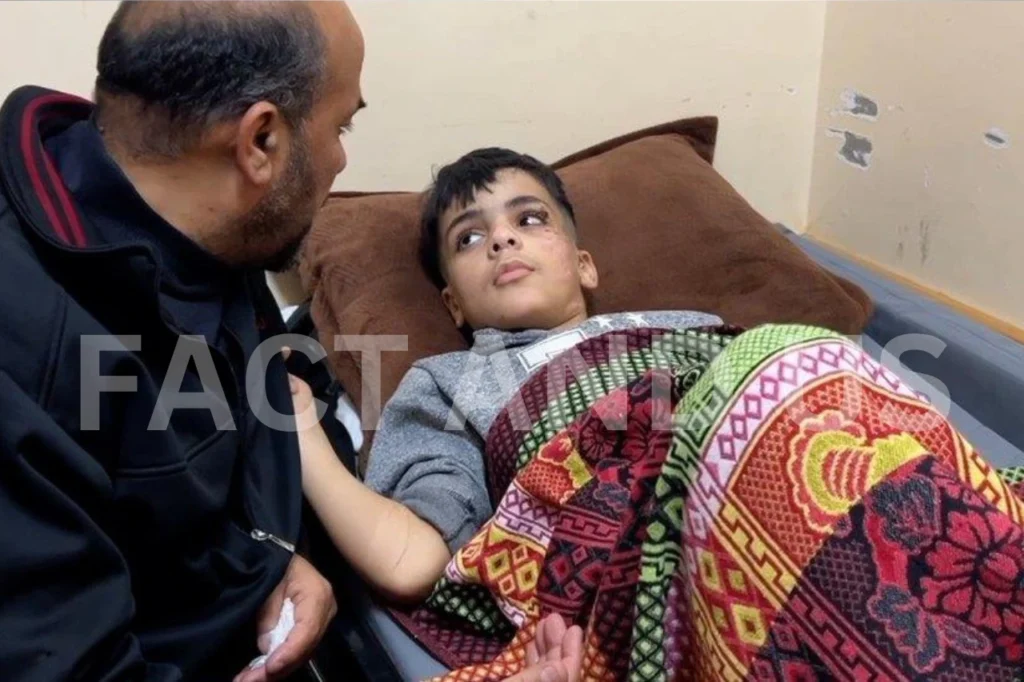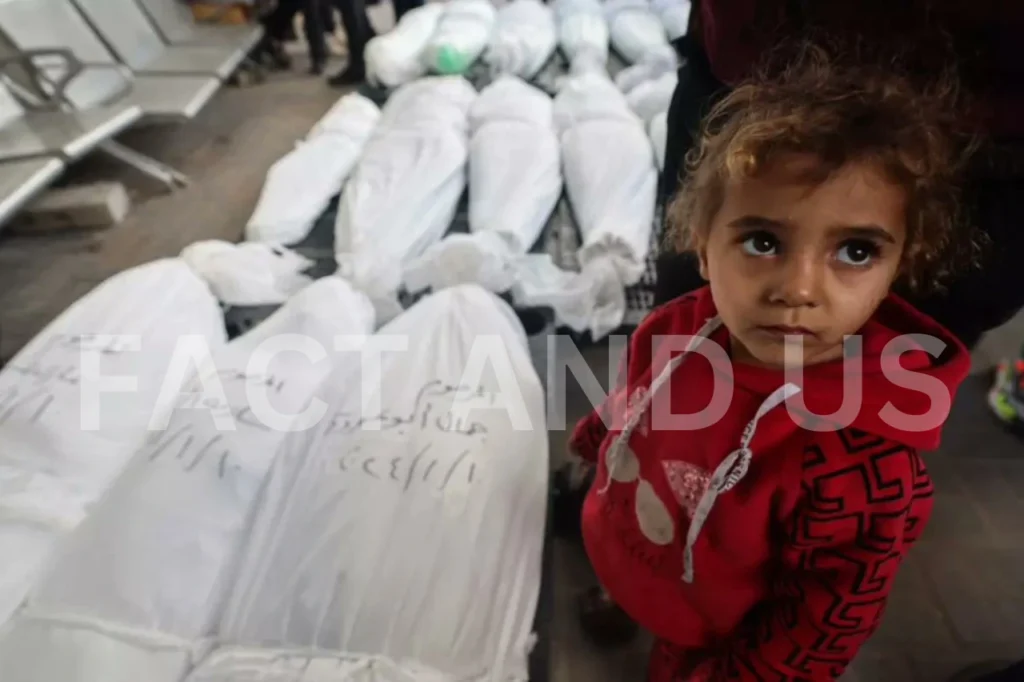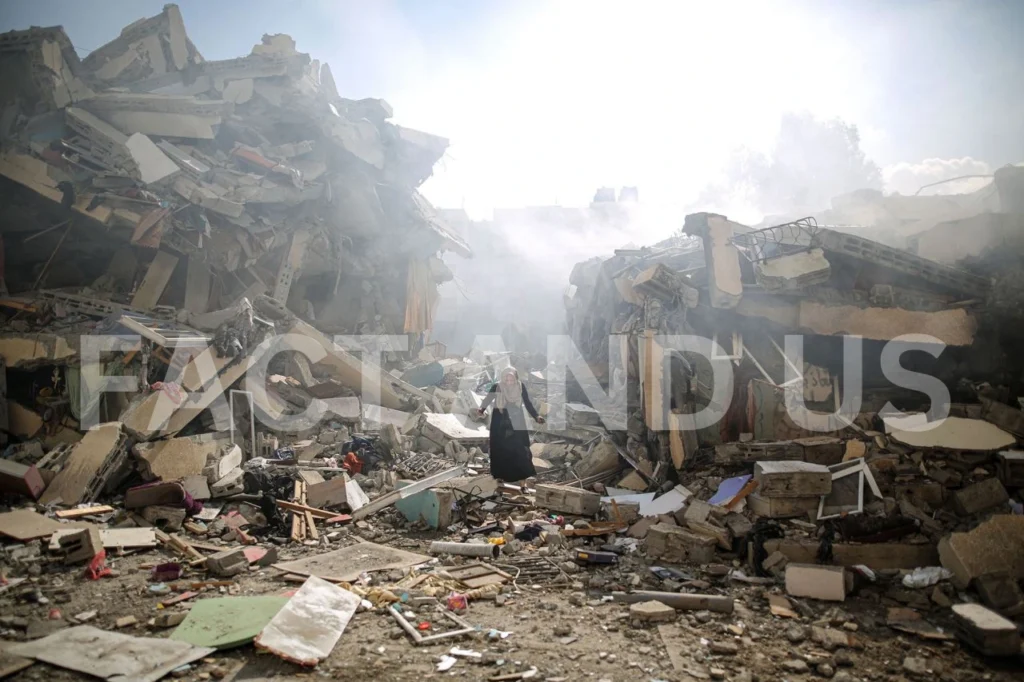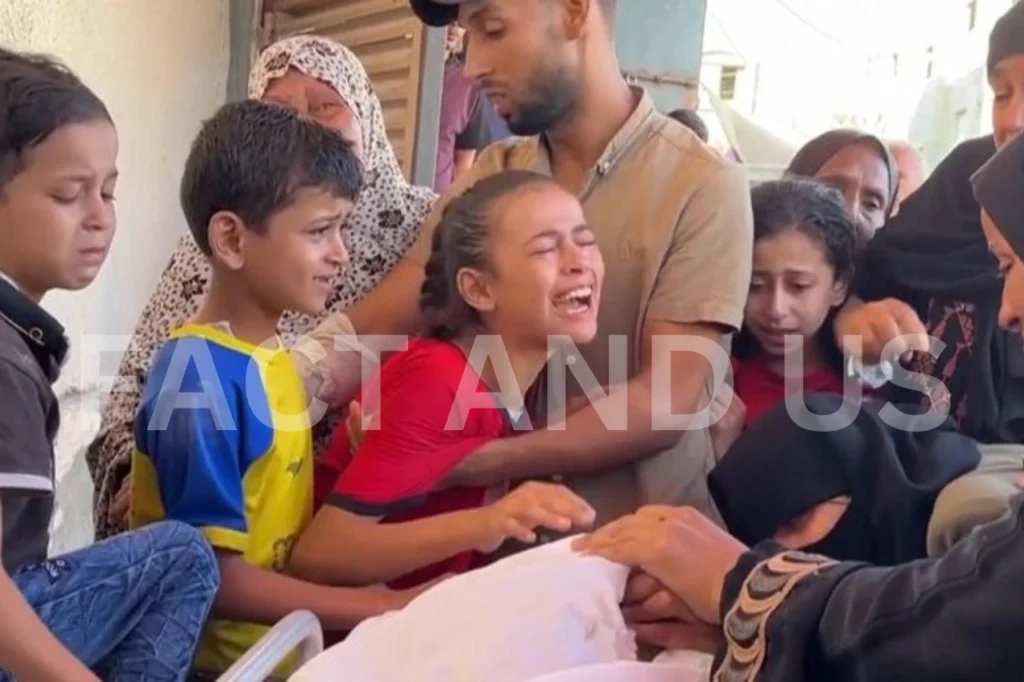Batsheva doesn’t know whether her husband is alive or dead, Abdullah is orphaned as a teenager, Christina and Abdulrahman hope he will be able to walk again.

Contents
- 1 Injured, orphaned and deeply shocked
- 2 ‘The hardest thing is not knowing’
- 3 “Every few minutes he would tell us he loved us,” Batsheva said.
- 4 “He (the son) saw how they brutally killed people, children and women.”
- 5 ‘It would have been better if I had been martyred’
- 6 “I always knew about it.”
- 7 ‘I’m relieved I’ve only lost a leg’
- 8 “I could see that my leg was bleeding. I couldn’t stand up.”
- 9 ‘I started shouting but he did not respond’
- 10 “I started shouting but Laith did not respond.”
Injured, orphaned and deeply shocked
These people living in Israel, Gaza, Lebanon and the West Bank told the BBC how their lives changed after the attack on October 7 last year.
It has been a year since Hamas attacked Israel, killing 1200 people and taking 251 people hostage.
In response, Israel launched large-scale air and ground attacks in Gaza. According to the Hamas-run Health Ministry, more than 41,000 people have died.
‘The hardest thing is not knowing’
A day before October 7, Ohad Yahalomi and his 10-year-old daughter Yael went to a nearby ground to look for animals. Jael’s elder brother Ethan (12) was playing football with his friends. Ohad’s wife Batsheva was at home with their youngest daughter who was not even two years old.


A community of less than 400 people lives in the Nir Oz kibbutz in southern Israel, about a mile from the Gaza border. Life here is quite different.
Batsheva, 45, said: “We loved life there and we are very simple. It was like heaven for us.”
The next morning the family woke up to the sound of rocket attack alert sirens.
But after a few minutes there were indications that this was not just any rocket attack. People shouting ‘Allahu Akbar’ and the sound of gunshots were heard from outside.
The family waited in fear in their ‘safe room’ for several hours, but the attackers started trying to enter the house. After this, to save his family members, Ohad left the ‘safe room’ and started trying to stop the attackers.
“Every few minutes he would tell us he loved us,” Batsheva said.
The attackers, wearing Kalashnikov rifles and grenade jackets, entered the house and shot Ohad before entering the ‘safe room’.
Batsheva said, “The attackers pointed rifles at us and said in English, ‘Let’s go to Gaza.’ I immediately understood what they wanted.”
Batsheva and her daughters were put on a motorcycle to be taken to Gaza. Whereas Ethan was sent on another motorcycle along with the foreign worker. Batsheva and her daughters managed to escape when the motorcycle got stuck, but Ethan and his father were taken away.
Aithan was held hostage by Hamas in Gaza for 52 days. Batsheva said that Ethan was forcibly shown the videos made on October 7.
“He (the son) saw how they brutally killed people, children and women.”

Batsheva said that Ethan was released after an agreement was reached in November for the release of hostages. Since the ongoing conflict between Hamas and Israel, this agreement has been reached only once in the last one year.
The armed Palestinian group released a video of Ohad in January, in which he is seen injured but alive. Since then the group has been saying that he was killed in an Israeli attack.
The Israeli army told Batsheva that they could not confirm the claims regarding her status or provide any update on her status.
Nir Oz is one of the communities most affected by the attack that took place on October 7 last year. Dozens of civilians were killed or abducted. The burnt houses are a reminder of what happened.
Batsheva said that her children have nightmares and have been sleeping with me for almost a year in the same bed on which I sleep. My children repeatedly ask when Papa will return. Ethan’s hair is falling out.
“The most difficult thing is not knowing what is happening to him (Ohad). Whether he is alive or not. We cannot live our lives like this.”
‘It would have been better if I had been martyred’

When Hamas attacked Israel on October 7, Abdullah was about 13 years old. Before this, his life was spent in school in Al-Tawan, near northern Gaza, playing football with friends, walking on the beach, and having fun with his parents, brother and two sisters.
A day before Abdullah’s birthday, people were asked to move towards the south. Soon after, Abdullah’s family hurriedly packed their essentials and set out for Salah al-Din Road, which the Israeli army had told them could pass through.
But when they moved towards Salah al-Din Road, the vehicle came under Israeli air attack.
Abdullah said, “My brother Ahmed and I came out of the car jumping in the air due to this attack.”
Ahmed was 16 years old when the airstrike took place and one of his legs had to be amputated. The other leg has metal plates.
Abdullah suffered injuries on his hands, head, waist and mouth and two long scars are visible on his stomach.
Abdullah, his family and several eyewitnesses told the BBC that the missile attack was carried out through a drone.
The Israeli Army rejected this claim and said that it had not attacked the convoy of civilians that day and termed it as a false allegation.
The spokesperson told the BBC, “The investigation found no evidence to prove that the IDF carried out the attack.”
Abdullah told that he remembers how the hospital staff were avoiding questions being asked about his parents. ‘I already had a feeling from what my cousin and grandmother told me.’
“I always knew about it.”

He further says, “If I had been martyred, it would have been better than what is happening to me now.”
Abdullah looks at the scar on his hand and says, “I feel like my hand has already been cut off. They tried to fix it, but all in vain.”
Abdullah and his two sisters, Minna (18) and Hala (11), are living with their grandmother in Khan Yunis area of southern Gaza.
Abdullah’s two sisters were in northern Gaza on the day their parents were killed in the attack because there was no room for them in the vehicle. Ahmed is staying in Qatar for treatment.
Abdullah said, “The laughter and good times are gone. We lost our mother, father and uncle.”
“These people were a source of happiness for the entire family.”
“We are not living well without them.”
“We used to go to school, play and laugh. Gaza used to be beautiful, but now it’s all gone.”
Abdullah told that he is unable to contact his friends and many have been killed in the war.
“This is my message to Israel. You did this to us. You took the lives of my parents. You took away my education. You took everything from me.”
‘I’m relieved I’ve only lost a leg’

Christina Asi said, “I used to identify myself as a photojournalist, but today I identify myself as a war crime survivor.”
Christina had gone to her country Lebanon as a photojournalist for the news agency AFP to cover the fighting on the southern border.
In view of the attack on October 7, the armed group Hezbollah started rocket attacks on Israel. This later took the form of a big conflict.
On October 13 last year, Christina and a group of journalists went to a village in the south of Lebanon which was about a kilometer away from the Israeli border. This was the village where the clash was taking place.
29-year-old Christina said that we were wearing a jacket and helmet with ‘press’ written on it. TV was written with yellow tape on the bonnet of the car. Thought we were safe.
He told that ‘suddenly firing started. I remember that the car next to me was on fire and I started trying to run away. There was difficulty in moving due to the weight of the bullet proof jacket and the camera.
“I could see that my leg was bleeding. I couldn’t stand up.”

After 12 days, Christina woke up in the hospital and said, “I was relieved that I had only lost a leg.”
Reuters journalist Isam Abdullah, 37, was killed and six others were injured in the attack. Regarding this, Christina said, “The nurse asked me who died, then I saw their name online. I could not believe the headline.”
The United Nations Interim Force in Lebanon, after investigating, reported that Israel had fired 120 mm shells at a group of ‘clearly identified journalists’ in violation of international law.
Many human rights groups said the case should be investigated as a possible war crime.
The IDF told the BBC that its troops suspected “terrorist infiltration” into Israeli territory. Tanks and artillery fire were used to stop this. The matter is being looked into.
Christina said that she feels angry and irritated about what happened to her.
“You lose confidence in everything. I had confidence in international law and the international community before, as a journalist.”
Christina carried the Olympic torch in a wheelchair with her AFP colleagues in July in honor of injured and killed journalists around the world.
She hopes that she will once again be able to get on the ground as a journalist.
“The day I can stand up, walk, go back to work with a camera and do what I love again, then I will be victorious.”
‘I started shouting but he did not respond’

Abdulrahman Al Ashkar told that it was evening time. After selling corn, he was roaming with his friend Laith Shawneh, smoking a cigarette.
“Suddenly there is a bombardment,” 18-year-old Abdulrahman recalls of the night of September 1.
Both of them come under attack from Israeli aircraft in the village of Silat al-Harithiya, located in the Israeli-occupied West Bank.
Abdulrahman told that he heard the sound of rocket, but did not have time to escape. “I could only take a step back,” he said.
“I started shouting but Laith did not respond.”

16-year-old Laith is killed and Abdulrahman is seriously injured. The part below the knees of both his legs had to be amputated.
Abdulrahman said he regains consciousness after 10 days and is told that his heart has stopped beating three times so far.
Abdulrahman is still in the hospital. Metal plates are attached to one hand, two fingers are damaged. Also several stomach surgeries have been done. He said that the pain is constant.
Violence has increased in the West Bank since October 7. Israel says that our aim is to stop deadly attacks in our country. Hundreds of Palestinians have been killed in the attack.
Before the attack, Abdulrahman was living a normal life like other people. His life was spent in morning prayers, breakfast with friends, helping his father in his work and selling corn.
But now he has become dependent on his brother for everyday tasks like going to the bathroom. Their mother feeds them.
The BBC contacted the IDF after the attack. During this time, the IDF had said, “Aircraft attacked a terrorist cell immediately after explosives were seen thrown at the forces of the Menashe Brigade deployed in the Jenin area.”
When asked if he was carrying a weapon, he said, “What kind of weapon? I came out of the house immediately. I was walking on the road wearing white clothes…I was just going out.”
He says that he only dreamed of getting a driving license and buying a car.
“If there’s anything I want today, it’s to walk.”
stay connected with fact and us for more such news.
